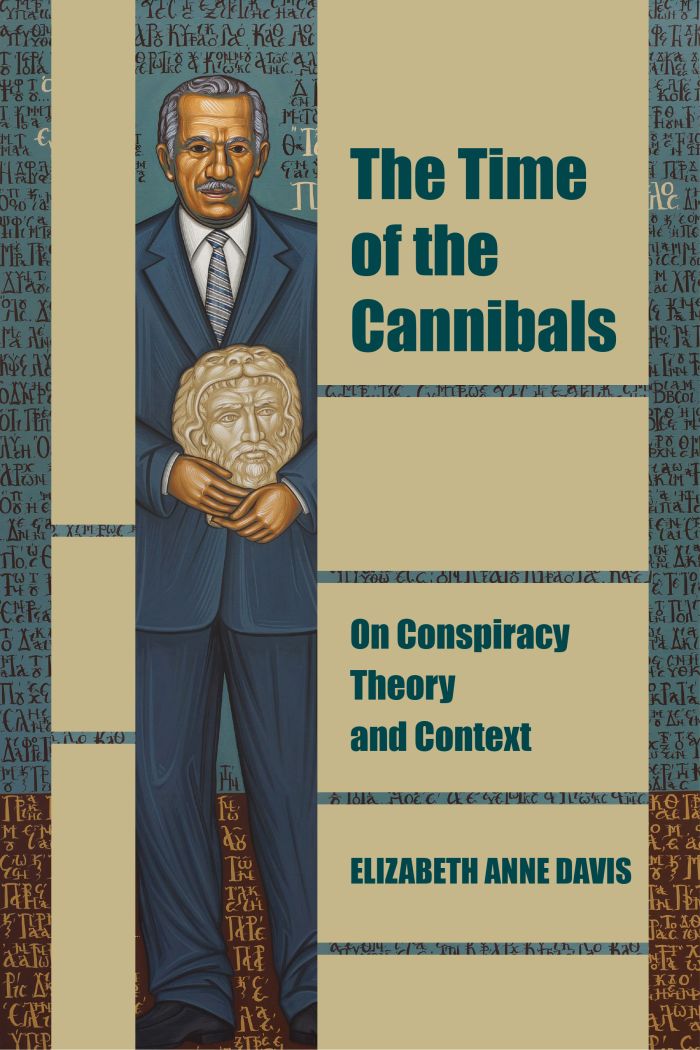The Time of the Cannibals
On Conspiracy Theory and Context

This book can be opened with

In 2009, the body of a former president of the Republic of Cyprus, Tassos Papadopoulos, was stolen from his grave. The Time of the Cannibals reconsiders this history and the public discourse on it to reconsider how we think about conspiracy theory, and specifically, what it means to understand conspiracy theories “in context.”
The months after Papadopoulos’s body was stolen saw intense public speculation in Cyprus, including widespread expressions of sacrilege, along with many false accusations against Cypriots and foreigners positioned as his political antagonists. Davis delves into the public discourse on conspiracy theory in Cyprus that flourished in the aftermath, tracing theories about the grave robbery to theories about the division of Cyprus some thirty-five years earlier, and both to longer histories of imperial and colonial violence.
Along the way, Davis explores cross-contextual connections among Cyprus and other locales, in the form of conspiracy theories as well as political theologies regarding the dead bodies of political leaders. Through critical close readings of academic and journalistic approaches to conspiracy theory, Davis shows that conspiracy theory as an analytic object fails to sustain comparative analysis, and defies any general theory of conspiracy theory. What these approaches accomplish instead, she argues, is the perpetuation of ethnocentrism in the guise of contextualization.
The Time of the Cannibals asks what better kind of contextualization this and any “case” call for, and proposes the concept of conspiracy attunement: a means of grasping the dialogic contexts in which conspiracy theories work recursively as matters of political and cultural significance in the long durée.
Elizabeth Davis interrogates our ongoing epistemic breakdowns and offers a startlingly original theorization of conspiracy attunements. This is nothing less than a guide book on how to think critically and navigate our current post-fact, misinformation-filled media milieu.—Joseph Masco, University of Chicago
As the pages turn onto each other the brilliance of this book explodes showing that this is a project that brings together the ante- and afterlives of British colonialism in its most sinister form.—Neni Panourgiá, Columbia University
Introduction: The Time of the Cannibals | 1
Part 1: On Conspiracy Theory and Context | 27
1. The Symptomatic Approach | 28
2. The Epistemological Approach | 47
3. The Particularist Approach | 54
4. The Psychoanalytic Approach | 63
5. The Political Approach | 76
6. Toward Conspiracy Attunement | 87
Interlude: The Body Itself | 110
Part 2: On Conspiracy Attunement: A Case Study | 153
1. Discourse on Division | 155
2. The President’s Body | 168
3. Recursion and the Curse of Cyprus | 193
Inconclusion (Recontextualization) | 217
Acknowledgments | 227
Notes | 231
Bibliography | 253
On the Frontispiece | 273
Index | 275
Insert follows page 150




